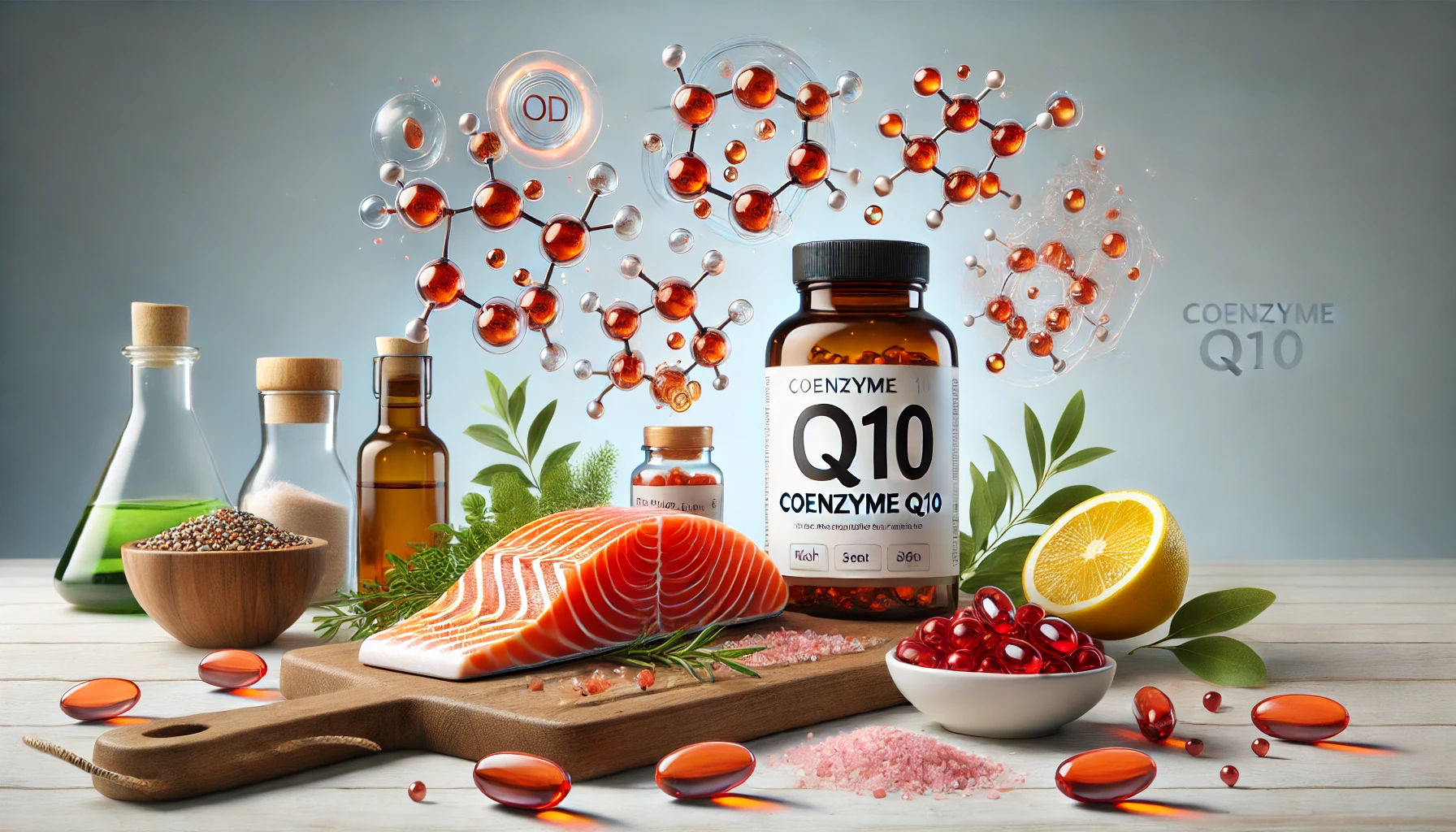COQ10 (Coenzyme Q10): An overview
Check out this answer from Consensus:
CoQ10 is a vital molecule with diverse physiological functions and significant health benefits. Its role in energy production and antioxidant defense makes it a valuable supplement for various chronic diseases, including cardiovascular, metabolic, and neurodegenerative disorders. While current research supports its efficacy, further studies are needed to fully understand its therapeutic potential and optimal dosing strategies.
Coenzyme Q10 (CoQ10), also known as ubiquinone, is a naturally occurring compound found in every cell of the human body. It plays a crucial role in the production of energy within cells and serves as a powerful antioxidant. This article explores the various aspects of CoQ10, including its physiological functions, health benefits, and clinical applications.
Physiological Functions
CoQ10 is an essential component of the mitochondrial electron transport chain, where it facilitates the production of adenosine triphosphate (ATP), the primary energy currency of the cell. It exists in both reduced (ubiquinol) and oxidized (ubiquinone) forms, allowing it to participate in redox reactions that are vital for cellular energy production and antioxidant defense1 3 4.
Health Benefits
Antioxidant and Anti-inflammatory Properties
CoQ10 is renowned for its antioxidant properties, which help neutralize free radicals and reduce oxidative stress. This antioxidant activity is crucial in preventing cellular damage and inflammation, which are underlying factors in many chronic diseases1 3 4. Studies have shown that CoQ10 supplementation can significantly reduce levels of inflammatory biomarkers such as C-reactive protein (CRP), interleukin-6 (IL-6), and tumor necrosis factor-alpha (TNF-α)2.
Cardiovascular Health
CoQ10 has been extensively studied for its benefits in cardiovascular diseases. It is particularly beneficial in conditions like heart failure, hypertension, and myocardial infarction. Clinical trials have demonstrated that CoQ10 supplementation can improve symptoms, reduce major adverse cardiovascular events, and lower mortality rates in patients with chronic heart failure4 5 10. Additionally, CoQ10 helps in reducing oxidative stress and inflammation, which are critical factors in cardiovascular health4 10.
Metabolic Syndrome and Diabetes
CoQ10 has shown promise in improving metabolic health by regulating adipokine levels and reducing inflammation and lipid peroxidation. Meta-analyses have indicated that CoQ10 supplementation can increase adiponectin levels and improve glucose control and liver function in individuals with metabolic syndrome9.
Aging and Neurodegenerative Diseases
The levels of CoQ10 decline with age, contributing to increased oxidative stress and mitochondrial dysfunction. Supplementation with CoQ10 has been shown to alleviate symptoms of aging and improve bioenergetics. It also holds potential in treating neurodegenerative diseases such as Parkinson’s and Alzheimer’s by enhancing mitochondrial function and reducing oxidative damage3 7 8.
Clinical Applications
Cardiovascular Diseases
CoQ10 is widely used as an adjunctive treatment in various cardiovascular conditions. It has been shown to improve clinical and hemodynamic parameters in patients with heart failure, hypertension, and ischemic heart disease. The antioxidant and anti-inflammatory properties of CoQ10 make it a valuable therapeutic agent in these conditions4 5 10.
Neurodegenerative and Muscular Diseases
Beyond cardiovascular health, CoQ10 is also beneficial in treating neurodegenerative and muscular diseases. It has shown potential in improving symptoms and quality of life in conditions such as Parkinson’s disease, Alzheimer’s disease, multiple sclerosis, and chronic fatigue syndrome7.
Other Applications
CoQ10 has also been explored for its potential benefits in cancer, migraine, and Meniere-like syndrome. Its role in improving immune function and reducing oxidative stress makes it a versatile supplement for various health conditions7 10.
